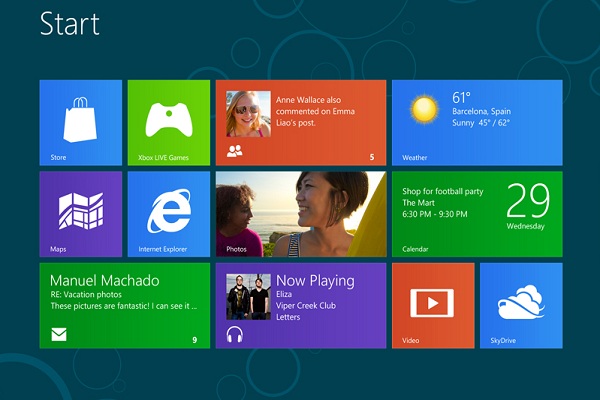Windows 8 trade secrets leaker given three-month jail term
Ex-Microsoft employee has already served most of his sentence, and is set to be deported next week.

A former Microsoft employee has been given a three-month prison sentence for leaking trade secrets about Windows 8 to a French blogger.
Alex Kibkalo, who worked at the software giant for seven years, pleaded guilty to uploading pre-release updates of Windows 8 RT and the Microsoft Activation Server Software Development Kit (SDK) to his personal OneDrive (formerly SkyDrive) account.
He then reportedly leaked details of the release to an anonymous blogger, after Microsoft refused to amend an unfavourable performance review about Kikbalo from 2012.
At the time, he threatened to resign if Microsoft refused to amend the document. When the company refused, it is claimed this prompted him to start leaking trade secrets.
He was given a three-month prison term for the theft of trade secrets, but has served most of his sentence already as he's been incarcerated since 19 March.
He initially agreed to repay Microsoft $22,500 in damages, but court records release this week state: "The court finds the defendant is financially unable and is unlikely to become able to pay a fine and, accordingly, the imposition of a fine is waived."
As such, it's expected he'll be released within a week and deported back to Russia straight after.
Sign up today and you will receive a free copy of our Future Focus 2025 report - the leading guidance on AI, cybersecurity and other IT challenges as per 700+ senior executives
IT Pro contacted Microsoft for comment on Kibkalo's sentencing, but had not received a response at the time of writing.
The case caused quite a furore when details of it first emerged in March 2014, as Kibkalo was brought to justice after Microsoft's Trustworthy Computing Investigations division tracked him down by wading through the blogger's Hotmail account and MSN chat records.
The move caused outrage among privacy campaigners, despite its actions being well within the rights of the terms and conditions of use for its webmail service.
In response, the vendor released a statement at the time, saying it would not peek into anyone's Microsoft-owned email accounts unless a separate legal team decrees there is "evidence of a crime that would be sufficient to justify a court order, if one were applicable."
-
 Cisco sounds alarm over AsyncOS zero-day flaw
Cisco sounds alarm over AsyncOS zero-day flawNews The zero-day vulnerability affects Cisco's Secure Email Gateway and Secure Email and Web Manager appliances – here's what we know so far.
-
 EU lawmakers want to limit the use of ‘algorithmic management’ systems at work
EU lawmakers want to limit the use of ‘algorithmic management’ systems at workNews All workplace decisions should have human oversight and be transparent, fair, and safe, MEPs insist
-
 Windows 10 extended support costs could top $7 billion
Windows 10 extended support costs could top $7 billionNews Enterprises sticking with Windows 10 after the October deadline face huge costs
-
 Tiny11 review: Windows 11 with only 2GB of RAM
Tiny11 review: Windows 11 with only 2GB of RAMReview A version of Windows 11 for older machines that don't meet the full requirements
-
 Red Hat Enterprise Linux becomes foundational operating system for Cohesity Data Cloud
Red Hat Enterprise Linux becomes foundational operating system for Cohesity Data CloudNews New strategic partnership between Red Hat and Cohesity aims to drive innovation in the data security and management space
-
 Ubuntu shifts to four-week update cycle
Ubuntu shifts to four-week update cycleNews Critical fixes will also come every two weeks, mitigating the issues involved with releasing prompt patches on the old three-week cadence
-
 AlmaLinux follows Oracle in ditching RHEL compatibility
AlmaLinux follows Oracle in ditching RHEL compatibilityNews Application binary compatibility is now the aim with 1:1 now dropped
-
 How big is the Windows 10 cliff-edge?
How big is the Windows 10 cliff-edge?ITPro Network With some comparing the upcoming Windows 10 end of life to Windows XP, we ask members of the ITPro Network for their insight
-
 Everything you need to know about the latest Windows 11 updates - from bug fixes to brand-new features
Everything you need to know about the latest Windows 11 updates - from bug fixes to brand-new featuresNews Two new cumulative updates are on the way and will be installed automatically on Windows 10 and Windows 11 machines
-
 How to download a Windows 11 ISO file and perform a clean install
How to download a Windows 11 ISO file and perform a clean installTutorial Use a Windows 11 ISO to install the operating system afresh